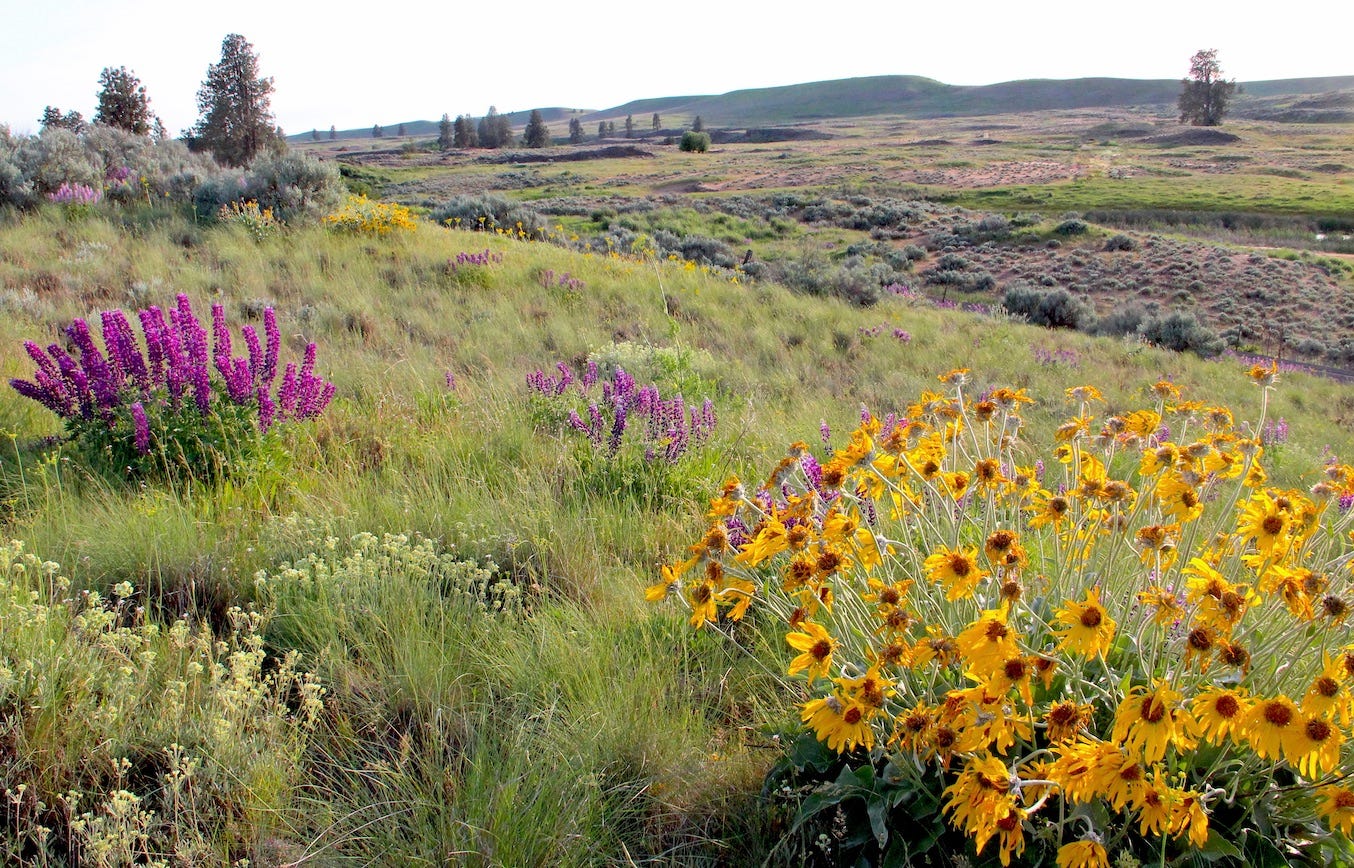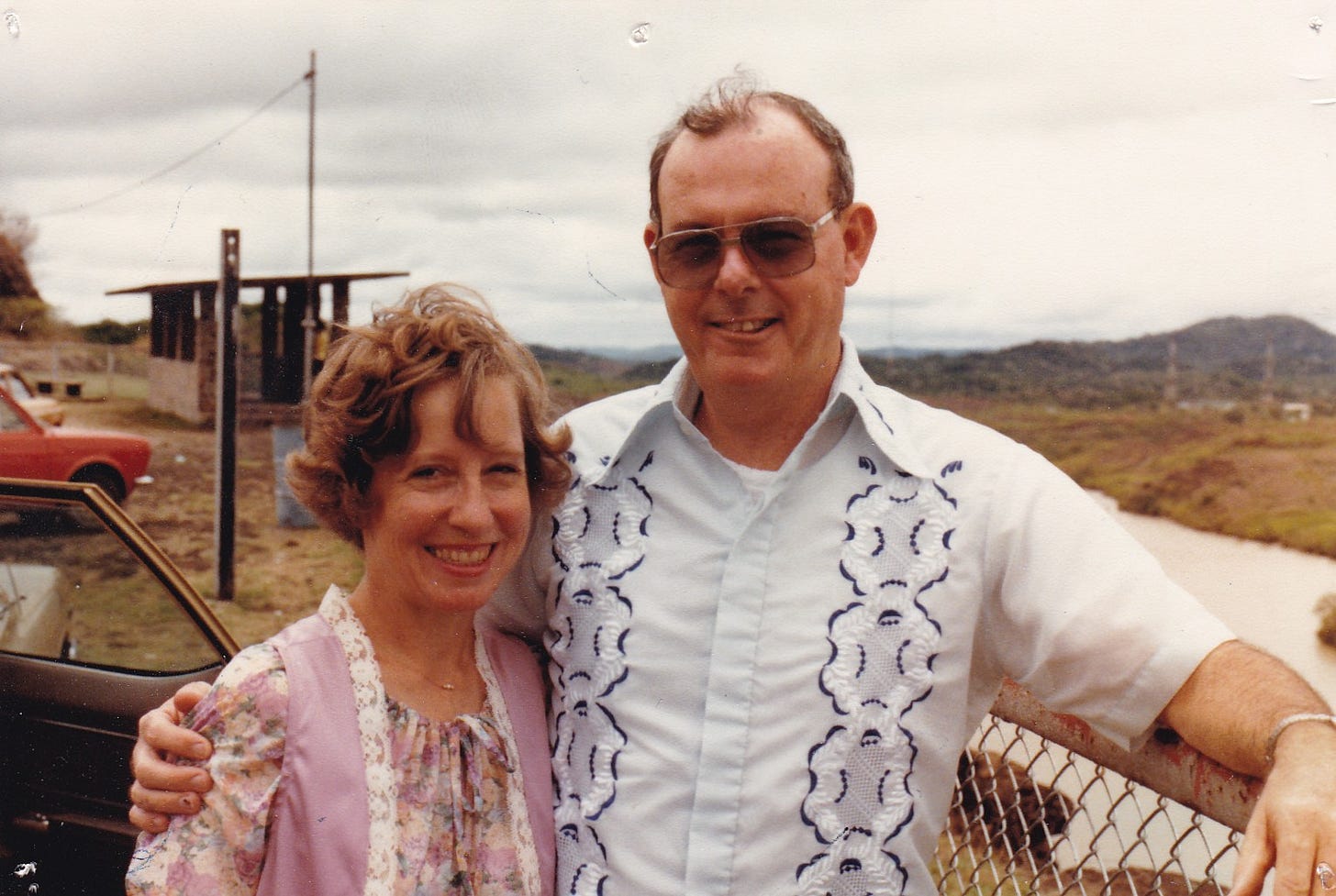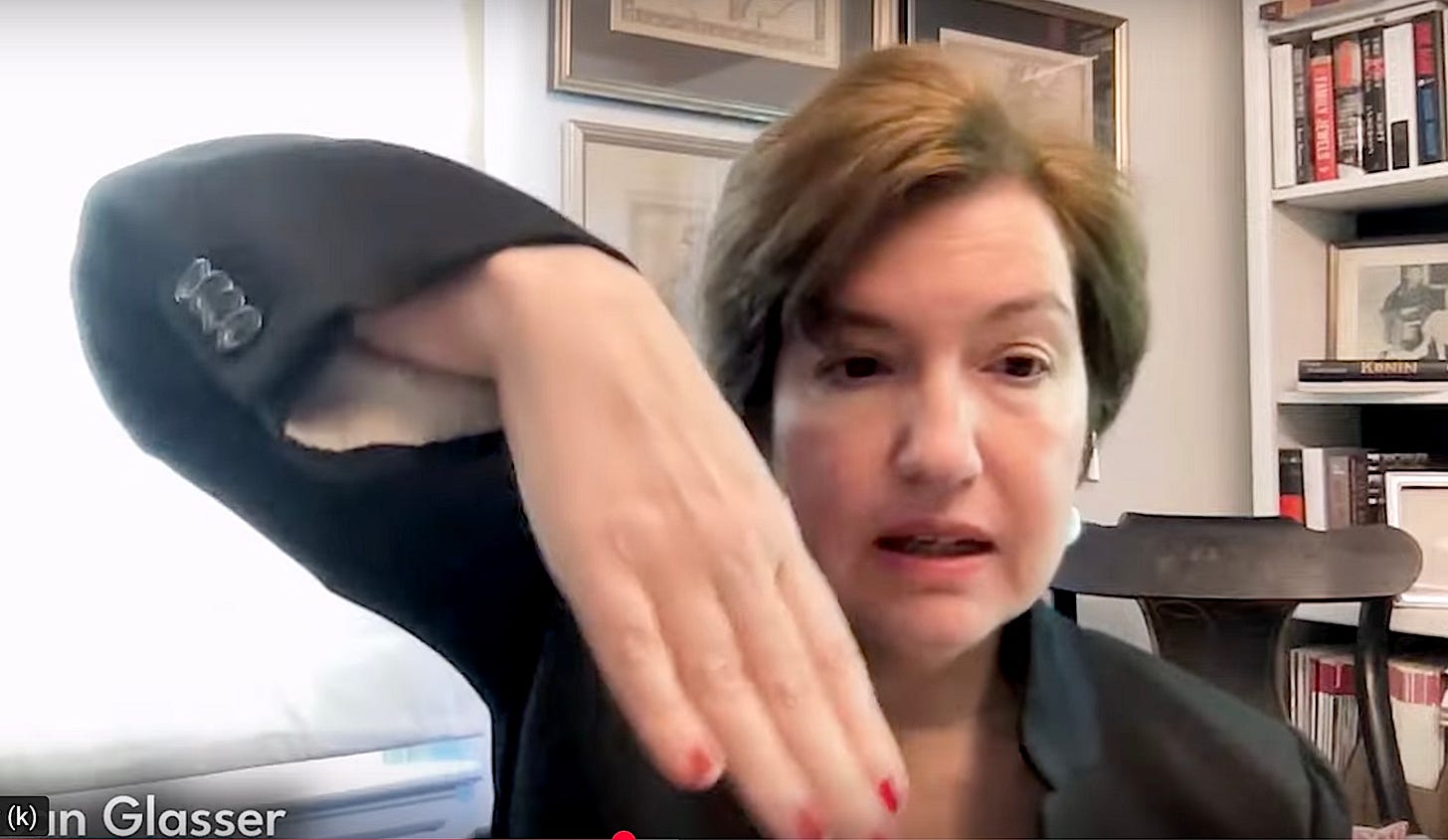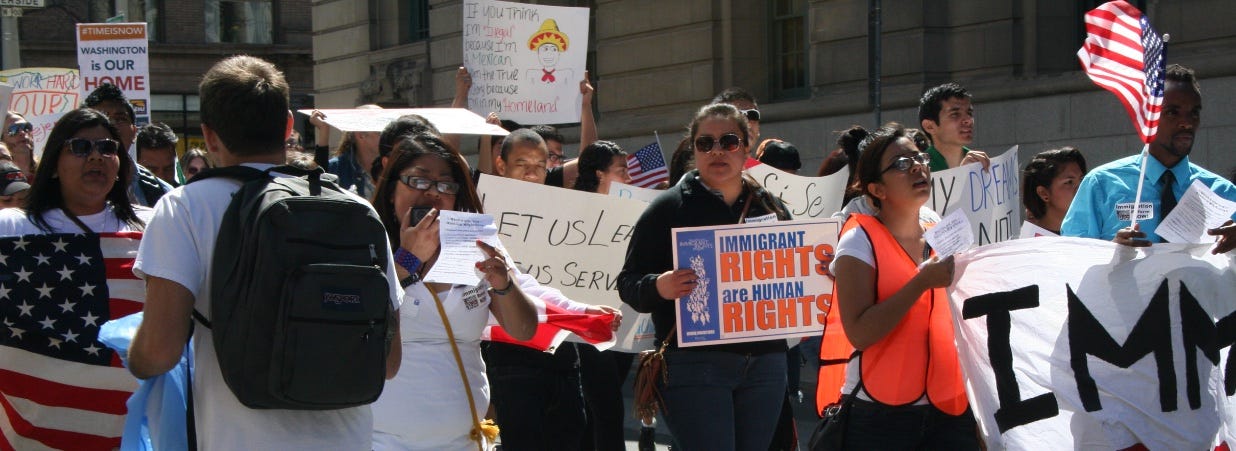May 9, 2025
Another Way to Leave (2017) Large-leaf lupine and balsamroot blooms in westernmost Spokane County
Rescuing a future, beyond Trumpism
My last year with my father didn’t go so well. A couple days before Christmas, 2016, he developed a nasty infection, landing him in the hospital, where I was with him for several days as he recovered. It was the beginning of the last year of his life.
I don’t know that my family is all that different from other white, Catholic, middle class families that roll through the years, dispersing to find work and mates, regathering for major holidays and anniversaries with the welcome milestones and unwelcome tragedies of life jammed between them. For all that my father did well and got better at over the years, it was his finest work and personal growth (certainly inspired by my mother) that set him up for his greatest disappointment.
I experienced this just a few days after I brought him home from the hospital, after his near-fatal seizure from the infection. I turned on the t.v. to check the news while he was out of the room. When he returned, the news was about the then-new president, one Donald Trump, whom he deeply despised. He snatched the remote and hit the off button.
“I can’t take this any more,” he said.
He died on my birthday eleven months later, taken down by a heart attack while shoveling snow. We self-published his memoir and then I went to work cleaning out his office. Some of what he saved was paper correspondence that, in these times, would have been emails I likely would never have known about. By far, the most valuable memos he saved were to and from his boss, Seymour Barkowitz, the principal at the sprawling junior high school where dad taught science for years before becoming Seymour’s assistant principal.
Mom and dad at Contractor’s Hill (Culebra Cut) above the Panama Canal in 1981, shortly before his retirement from the Panama Canal company
My dad was a big “C” Catholic who never missed mass (except for his time in the hospital), and Seymour was a prominent Jewish leader in our community in the then-U.S. occupied zone abutting Panama City. Neither had an easy job and, as head of the science department, my father bore the brunt of Catholic and other conservative Christian criticism that he was supervising and participating in the teaching of evolution and sex education.
That criticism was a defining experience for him, and Seymour’s guidance was vital. They knew who and where they were. They were there to enable the education of young minds, but also to uphold the virtues of a civil, secular society, to foster respect for the dignity and rights of everybody, irrespective of race, creed, and wealth. So far as I could tell, dad’s conversations with those who believed otherwise were cordial but brief. Seymour Barkowitz had his back.
I don’t have the words in my kit to describe how disoriented my father was by the rise of Donald Trump. It caught him flush between the eyes—to suddenly have a president who mocked science and purposefully fueled racial and ethnic prejudice to divide people, so he could harvest their anger.
I’d like to forget it, but I clearly remember the pained, disoriented look on his face when he spoke with me about it, and I’d filed that look away. Only to see it, again, a couple days ago. Only it wasn’t on his face, in a dream. It was on Susan Glasser’s in real life, on the screen of my lap top computer a couple days ago.
The New Yorker’s Susan Glasser, describing Trump’s tariff nose-dive, in her recent interview with Mona Charen
I’ve never met Glasser but I know of her because she writes the Letter from Trump’s Washington for the New Yorker magazine. The Letter from Washington is a longstanding feature of the New Yorker, most notably under the byline of Elizabeth Drew, but now in Glasser’s hands. She is married to the New York Times’s chief White House correspondent Peter Baker. They’re both very talented, conscientious journalists, at the pinnacle of their profession.
I don’t know how I would be at their jobs, in these times, in part because I started my career as a reporter in a much different time, when Ronald Reagan was president, decades before Donald Trump declared journalists “the fake news“ and “enemies of the people.”
The first Republican politicians I met as a young reporter, in my twenties, were Slade Gorton and Dan Evans. Gorton was a state attorney general who went on to serve in the U.S. Senate and Evans, who died at the age of 99, served more than a decade as governor before also serving a term as U.S. Senator. They were both rounded, serious people, capable of reflection and humility. When Dan Evans passed away last year the Seattle Times’s David Horsey wrote a tribute to him, emphasizing that he was “utterly different from Donald Trump. He was not a liar. He was not a self-absorbed blowhard. He was not a vengeful bully…He did not encourage people’s anger, paranoia, fear and hatred.”
Horsey was spot on. In a healthy democracy there is a fluid though tense symbiosis between journalists and elected public officials. The frictions in the relationships are predominantly signals our system of checks and balances is working. It is so vital to democracy that Jefferson is famously quoted as writing, in 1787, that if he had to choose between “government without newspapers or newspapers without a government, I should not hesitate a moment to prefer the latter.”
Today’s post is free and full to all readers, but please consider supporting this project with annual subscription at the link above—thanx, tjc
When I saw the pained look on Glasser’s face she was being interviewed by Mona Charen. For many years, and until recently, Charen was a conservative columnist for the Washington Post, after having once-served in the Reagan White House and as a communications advisor to Jack Kemp, another prominent conservative Republican. For the most part, I winced when I read her Washington Post columns but that changed, dramatically, with the rise of Trump. Because Mona Charen—like a legion of other “never-Trumpers” who’ve fled the party in the last decade—views Trump as a threat to democracy, but even more passionately as a threat to fundamental human decency. On that we agree and I’m grateful she writes and speaks out about it with such passion.
I don’t know if there’s room for subtlety in this collision between actual American journalism (as opposed to the undisguised partisan cheerleading from Fox News and its imitators) and the Trump movement. But I thought I should try. The murkier forces of capitalism are a consistent threat to the ethics of journalism and public service in general. Suffice to say, the resignations on my resumé speak to that. But my experience with my fellow journalists is that they’re predominantly devoted to fairness and truth-seeking—a view that not all of my friends share. Enough said on that, at least for now.
What I think unites my father (and me) with Susan Glasser is our pain in watching the American experiment combust before our eyes, under the leadership of a dangerous, mean-spirited charlatan who’s done and continues to do great damage to our society. Here’s a lightly-edited transcript of the part of the interview that reminded me of my father’s exasperation.
…there's no brilliant plan on the part of Trump. And that's, you know, this mistake that I can't believe people make again and again and again over the last nine years of imputing a strategy to someone who not only is the most tactical leader of our time, but basically, you know, he doesn't know when he wakes up in the morning, what he's going to be doing by the end of the day. And so I just feel like it's really important to say all that, you know, that it's, yes, there is a playbook, yes, going to declare victory in a series of absolute climb downs, but he's still doing a level of destruction damage that I don't think can be undone. Actually, that's the thing that really amazes me. A hundred days in, if you look..just on the economy, you think Donald Trump at this point can go and persuade Canadians and French people and Italian people and German people to come have their vacations here? What are they talking about in Germany right now? They're talking about, you know, Trump's goons arresting two young women in Hawaii and deporting them. That's what they're talking about in Germany. You look at that graph of tourism to America and the bookings and it's like a cliff and it's not coming back. And Donald Trump in a hundred days, he has probably done enormous, lasting damage to one of the big pillars of our economy, our tourism industry. Who the hell wants to come to America right now?! I don't want to come to America right now.”
As bleak as this reads, a worse alternative is numbness. The only people who stand to benefit from vacant stares at this point will be those like the top Trump appointments Kristi Noem, Pam Bondi, and Stephen Miller who seem to have stepped right out of central casting as villains in a Batman movie. More to the point, there remains a dynamism in American culture and society that allows us to change course and rebuild not just our physical and cultural infrastructure but a clarified and deeper moral commitment to equity and justice. We have not lost our better selves. But we do have to wake them up and be focused and determined for what’s ahead.
I can’t bring my father back, but I’m blessed to still find him in my sleep, where he still inspires me. Not long ago I dreamt that I woke up under a tree in a far away land. It wasn’t Panama but it was tropical, Africa perhaps, maybe Malaysia. The air was heavy and warm and it was noisy. He was supervising a construction project involving heavy lifting and irrigation pipe. I called out to him.
He smiled and was happy to see me.
“Can you give me a minute?” he shouted above the noise. “I’m kinda busy right now.”
—tjc










